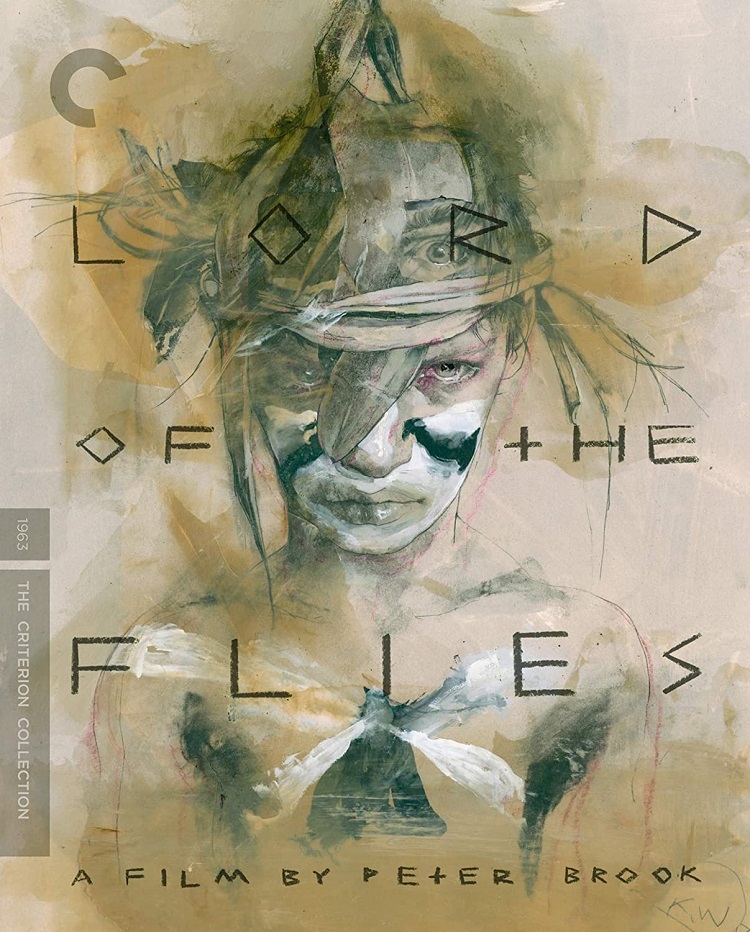
Written by Kristen Lopez
I vividly remember the Lord of the Flies unit in my seventh grade class. I’m not sure if my seventh-grade mind could truly take in the myriad themes and motifs within William Golding’s book; my disappointment stemmed from not being able to watch the film version. There are two adaptations of Golding’s book, one being the 1990s version (banned in my classroom due to its R-rating) and this 1963 adaptation (which we didn’t have time to watch). Thankfully, the purer adaptation has received the Criterion treatment and has hit Blu-ray in a beautiful transfer that will hopefully inspire a legion of fans who skipped the book to take it up. On top of a wealth of bonus features, Lord of the Flies from Criterion is a worthy investment.
A group of British schoolboys end up marooned on an island with no adults. Two boys, sensible Ralph (James Aubrey) and dictatorial Jack (Tom Chapin) soon divide the group into two camps causing them to be ripped apart by savagery.
As described in the enclosed booklet – itself filled with a fantastic essay written by Geoffrey McNab as well as an except from director Peter Brook’s autobiography – Brook wanted the language of Golding’s prose to speak for itself. With that, he threw the script away and told the cast of unknown young boys to improvise the dialogue. The novel became a launch pad for an adaptation that hews so faithfully to the source material as to be a direct translation. At a brisk 90 minutes the movie is a formal, straightforward exploration of innocence lost and violence found. A five-minute opening credit sequence establishes all you need to understand about the boys before they crash-land on the island: they are boys of privilege whose fathers represent all that is violent and controlling in the world. It’s not a surprise to watch them attempt to remain civil and fail miserably. As Jack quips, “We’ve got to have rules and obey them. After all, we’re not savages. We’re English! And the English are best at everything.”
The young actors assembled are all first (and for several, last) time actors and while character development is scarce, they’re all fantastic. James Aubrey’s Ralph received short shrift after losing much of his character development through cuts to reduce the runtime. Aubrey brings a sensibility, vulnerability, and responsibility (yes, that’s a lot if -ility’s) to the group without appearing puffed up or false. It is strange to hear the tonal shifts in his voice, as voice recording took place over a year later and Aubrey’s voiced had changed by then. While it is funny to hear how his voice fluctuates, a lot of that is negligible because you are rooting for him throughout. He has a compassionate relationship with slow-witted Piggy (Hugh Edwards) that ends up leading to a tragic conclusion. Edwards takes a character that I found annoying in the text and fleshes that out into a touching character whose fate you mourn. Piggy’s the character who wants to be a kid, and plays at being an adult. Our villain is the rather intimidating Tom Chapin as Jack. Jack is the authoritarian of the group who comes to represent lawlessness and hedonism. It’s a rather shocking transformation considering how prim and proper he sounds. (Chapin’s dialogue was dubbed by another actor as he lost his British accent when they were re-recording.)
Brook’s economical style translates into an adaptation short of exposition and unnecessary filler; in its place is a stark presentation on our own society. Even the most innocent in the world can be capable of the worst violence. If you absolutely can’t stand to read Lord of the Flies, you must watch the film.
The supplementary material is abundant, making this a packed presentation that’s come to be expected from Criterion. The included essay is on sturdy paper (a surprise if you’re used to the glossier booklets) and includes the aforementioned essay from McNab, an except from Peter Brook’s autobiography, and information on transferring the film for Criterion; the illustrations peppered throughout the text make this one of the more artistic booklets from Criterion that I can recall. On the actual disc is a three-section behind-the-scenes featurettes featuring home movies, outtakes and screen-tests from the film; optional commentary with Brook, producer Lewis Allen, and others can be turned on but I preferred the visuals. An interview with Brook from 2008 is also a feature as he discusses the history of putting the film together; there’s also an interview with cameraman Gerald Feil who discusses the challenges of filming on the island (the loud ocean was the reason audio was recorded separately).
Feil also produced a documentary in 1975 called “The Empty Space” which looks at Brooks work as a theater director. While not exactly connected to the film, it is interesting hear more about Brooks’ work. William Golding is also represented within the bonus content; he gets two features including one being an except from a British television show and another has him reading Lord of the Flies with accompanying images (I loved this!). There is audio commentary with Brooks, Feil, and Allen that appeared on the original Criterion release and is good although it can rehash elements included on other features. “Living Lord of the Flies” features the young boys being given a camera and told to record what happens. This is an interesting snippet exploring the making of the films from the young actors’ perspective. You also have a deleted scene and the film’s original trailer. Suffice to say this disc is filled to the gills.